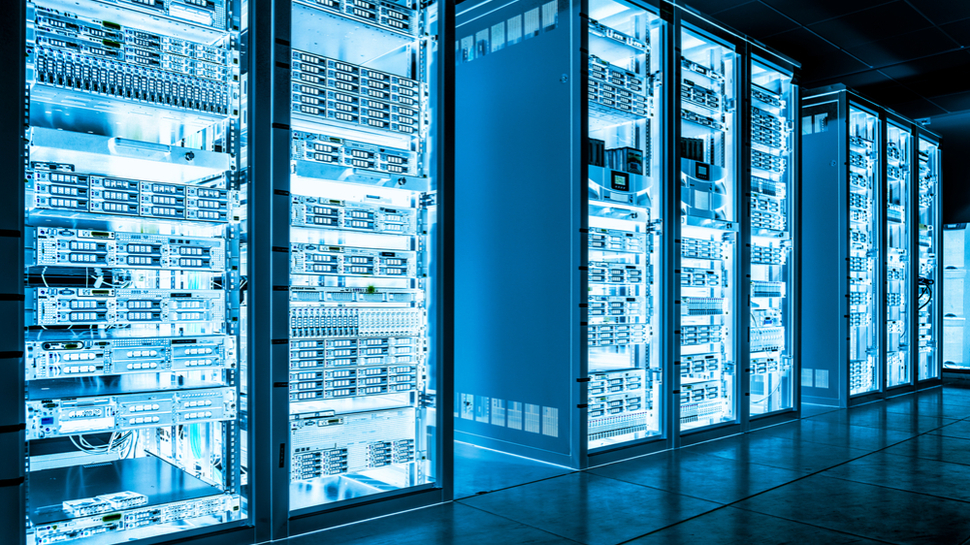5 things to consider when selecting your next online storage provider
The data centre is where all starts

As the demand for managed cloud and professional services rises, the considerations behind choosing the right cloud storage partner becomes more pertinent. There is a large range of variables that affect these providers’ ability to keep your data secure, your connectivity robust, and your costs low.
Most data centres were “state-of-the-art” when they were built, yet infrastructure quickly becomes obsolete if it does not adapt to the constant changes in regulation, cyber threats, and users’ needs and expectations.
Choosing the wrong cloud storage provider can have significant consequence on a business’s operations, including factors such as performance and business continuity problems, security vulnerabilities, and costs.
It pays to do due diligence before beginning a relationship of such strategic importance, so here are the five most important questions you should ask when choosing a cloud storage provider.
- Best ways to transfer files online in 2019
- Best ways to share big files
- Best ways to share files securely
1. Location, location, location
In today’s hyper-connected world, it may not seem important if your data is located across town or on the other side of the world. In fact, it’s crucial to know exactly where your precious data will reside. This is important not just from a legal point of view (with legislation such as GDPR governing where some data resides) but also for a range of business continuity and performance factors.
With business-critical data you need to consider factors such as the likelihood of natural disasters affecting your chosen facility. A remote data centre might come with lower costs, but the extra latency will make it unsuitable for high-performance applications.
For businesses that rely on Internet of Things, or those in industries where milliseconds matter like financial services, being close to the ‘edge’ is an especially important consideration in choosing the right provider.
Sign up to the TechRadar Pro newsletter to get all the top news, opinion, features and guidance your business needs to succeed!
2. Security
Recent times has seen a significant increase in ever-more sophisticated cyberattacks, committed by a range of well-resourced actors. As a result, security should be one of the most important factors influencing your choice of colocation provider.
You should conduct a rigorous security assessment covering both physical protections (such as access controls, CCTV and professional security on-site, 24/7) and logical security. This should cover everything from ensuring that the provider has the most up-to-date firewall protection, along with antivirus and malware protection, as well as a security information and event management system (SIEM) for identifying and eliminating threats on the network before they can successfully compromise customers’ sensitive data.
You should also look for the full range of security certification, including those that are relevant to your business’s particular industry.
3. Power & efficiency
Power is an often-overlooked factor when choosing a data centre facility, but it’s one of the most important considerations. A local power outage or brownout can have devastating effects if a data centre does not have sufficient back-up in place.
That’s why prospective customers should check that their future provider has appropriate systems in place in the event of a power failure. This should include emergency on-site generation, as well as an uninterruptible power supply (UPS) and full N+1 redundancy of all components. It is also vital to consider how your business’s power needs will change over time, and ensure that the provider can supply this capacity in the future.
Another related concept is sustainability. With IT consuming so much of the world’s electricity, it’s increasingly important for businesses to reduce their carbon footprint and energy usage. You should therefore look for a data centre partner that is committed to reducing its power usage effective (PUE) – the ratio between how much of a facility’s total energy use is consumed directly by IT equipment. The lower the PUE, the more efficient the facility – and the less you will be spending on power.
4. Connectivity
Connectivity is more than just the cable that carries the data from the facility to your business. The best colocation providers will have multiple data centres located throughout a region, providing an extra degree of resilience in the event of unforeseen disruption such as a natural disaster or energy blackout.
Replication to secondary facilities, or an IT architecture that’s distributed across geographic locations are some of the most effective forms of resilience, protecting against even the most extreme causes of downtime.
Ideally, you will choose a supplier that has its own carrier-neutral network, which provides a choice of connectivity provider that will best suit your budget, bandwidth and other needs.
5. Expertise
It’s easy enough to talk a good game, but there’s no reason why you should take a data centre’s claims to expertise and excellence on trust. With around 70 to 80 per cent of all downtime caused by human error, you should look for evidence of their expertise. This should include relevant qualifications from respected industry bodies, as well as certification from independent auditors such as the Uptime Management.
One of the biggest challenges facing the data centre industry – indeed, most industry sectors – is the global tech skills shortage. You should therefore ask a prospective provider what time and resources they commit to ongoing employee training, and their strategy for attracting and retaining this scarce talent.
Not every data centre is created equal. There is a significant disparity between different facilities on questions of cost, security, connectivity, resilience and many other factors. This isn’t to denigrate any particular provider: there needs to be a range of different data centres to match the very different needs of a range of businesses and industries.
To find the right one for your organisation, these five questions should form the core of your due diligence, and will help you find the right partner for a happy, successful and long-lasting relationship.
- Falk Weinreich is SVP of Sales and Marketing at Colt Data Centre Services
Falk Weinreich is General Manager Central Europe at OVHcloud. Prior to OVHcloud, he was the SVP of Sales and Marketing at Colt Data Centre Services. He is an experienced Senior Vice President Sales Marketing with a demonstrated history of working in the information technology and services industry. Strong marketing professional skilled in Managed Services, Business Development, Customer Relationship Management (CRM), Cloud Computing, and Channel Partners.
